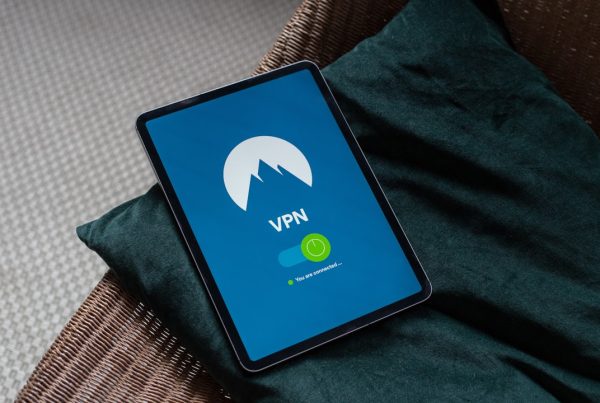Networking is often heralded as a cornerstone of professional success, and for good reason. It serves as a bridge that connects you to opportunities, resources, and individuals who can significantly influence your career trajectory. When you engage in networking, you are not merely exchanging business cards or LinkedIn connections; you are building a web of relationships that can provide support, guidance, and collaboration throughout your professional journey.
The importance of networking cannot be overstated, as it opens doors to new possibilities that you may not have encountered otherwise. By fostering connections with others in your field, you gain access to a wealth of knowledge and experience that can help you navigate challenges and seize opportunities. Moreover, networking is not just about what you can gain; it’s also about what you can offer to others.
When you approach networking with a mindset of mutual benefit, you create a more enriching experience for everyone involved. This reciprocal nature of networking fosters trust and goodwill, which are essential for long-lasting professional relationships. As you build your network, you may find that the connections you make can lead to mentorship opportunities, partnerships, or even job offers.
In an increasingly interconnected world, the ability to network effectively can set you apart from your peers and position you for success in your chosen field.
Key Takeaways
- Networking is crucial for career growth and opportunities
- Personal branding helps to differentiate and promote yourself
- Effective communication is essential for building relationships
- Social media is a powerful tool for expanding your network
- Networking events and conferences provide valuable opportunities for connections
Building a Strong Personal Brand
Establishing a Strong Personal Brand
In today’s competitive landscape, establishing a strong personal brand is crucial for standing out in your industry. Your personal brand is essentially the image and reputation you cultivate through your actions, communications, and interactions with others. It reflects your values, skills, and unique qualities that differentiate you from others in your field.
Discovering Your Unique Identity
To build a compelling personal brand, start by identifying what makes you unique. Consider your strengths, passions, and the value you bring to the table. This self-awareness will serve as the foundation for your brand and guide how you present yourself to others.
Consistency and Storytelling in Personal Branding
Once you have a clear understanding of your personal brand, it’s essential to communicate it consistently across various platforms. This includes your online presence—such as social media profiles and professional websites—as well as your in-person interactions. Consistency helps reinforce your brand identity and makes it easier for others to recognize and remember you. Additionally, storytelling can be a powerful tool in personal branding. Sharing your experiences, challenges, and successes can create an emotional connection with your audience and make your brand more relatable.
Developing Effective Communication Skills

Effective communication is at the heart of successful networking and relationship-building. The ability to convey your thoughts clearly and listen actively to others can significantly impact how you connect with people. To develop these skills, start by practicing active listening.
This means fully engaging with the speaker, asking clarifying questions, and demonstrating empathy. When people feel heard and understood, they are more likely to respond positively to you and foster a deeper connection. Additionally, honing your verbal and non-verbal communication skills is essential.
Pay attention to your tone of voice, body language, and facial expressions, as these elements can greatly influence how your message is received. Furthermore, adapting your communication style to suit different audiences is a valuable skill in networking. Not everyone communicates in the same way; some may prefer directness while others appreciate a more nuanced approach.
By being observant and flexible in your communication style, you can create a more comfortable environment for dialogue. Practicing public speaking can also enhance your confidence and clarity when communicating with larger groups. Whether it’s through formal presentations or casual conversations, refining your communication skills will empower you to express yourself effectively and build stronger connections with others.
Leveraging Social Media for Networking
| Platform | Number of Users (in millions) | Engagement Rate |
|---|---|---|
| 2,740 | 0.09 | |
| 1,221 | 1.6 | |
| 774 | 0.54 | |
| 330 | 0.05 |
In the digital age, social media has become an indispensable tool for networking. Platforms like LinkedIn, Twitter, and even Instagram offer unique opportunities to connect with professionals across various industries. To leverage social media effectively for networking, start by curating a professional online presence that reflects your personal brand.
This includes sharing relevant content, engaging with industry leaders, and participating in discussions that showcase your expertise. By being active on social media, you not only increase your visibility but also position yourself as a thought leader in your field. Additionally, social media allows for more informal interactions that can lead to meaningful connections.
Engaging with others’ posts through comments or shares can initiate conversations that may not have occurred otherwise. Don’t hesitate to reach out directly to individuals whose work you admire or who share similar interests; a simple message expressing appreciation for their work can open doors to further dialogue. Remember that networking on social media is not just about quantity but quality; focus on building genuine relationships rather than merely accumulating connections.
By utilizing social media strategically, you can expand your network far beyond geographical limitations.
Navigating Networking Events and Conferences
Attending networking events and conferences can be both exciting and daunting. These gatherings provide an excellent opportunity to meet new people and expand your professional circle; however, they can also be overwhelming if you’re unsure how to navigate them effectively. To make the most of these events, preparation is key.
Research the attendees or speakers beforehand so that you have a sense of who you might want to connect with. Setting specific goals for what you hope to achieve—whether it’s meeting a certain number of people or learning about specific topics—can help keep you focused during the event. Once at the event, approach conversations with an open mind and genuine curiosity about others’ experiences and insights.
Remember that networking is not solely about promoting yourself; it’s equally important to listen actively and engage with what others have to say. Be prepared with an elevator pitch that succinctly conveys who you are and what you do but remain flexible enough to adapt it based on the flow of conversation. Follow up after the event with personalized messages to those you connected with; this reinforces the relationship and keeps the lines of communication open for future interactions.
Cultivating Meaningful Relationships

The Importance of Meaningful Relationships
While expanding your network is crucial, it’s the genuine connections within that network that truly matter in the long run. Building these connections requires time and effort; it’s about nurturing relationships rather than simply collecting contacts. Start by investing in quality interactions—this could mean scheduling regular catch-ups with key contacts or offering assistance when they need it.
Building Trust and Strengthening Bonds
By demonstrating that you value these relationships beyond surface-level exchanges, you create a foundation of trust that can lead to deeper connections. Additionally, be proactive in showing appreciation for those in your network. A simple thank-you note or acknowledgment of someone’s achievements can go a long way in strengthening bonds.
The Power of Reciprocity
Remember that relationships are reciprocal; be willing to offer support or resources when others reach out for help. This mutual exchange fosters loyalty and encourages others to reciprocate when you need assistance down the line. By focusing on cultivating meaningful relationships rather than merely expanding your network, you create a supportive community that can enrich both your personal and professional life.
Cultivating a Supportive Community
Ultimately, investing in meaningful relationships can have a profound impact on your life. By prioritizing these connections, you can build a network of supportive individuals who can offer guidance, encouragement, and assistance when you need it most.
Giving and Receiving Support in Networking
Networking is inherently about building a community where support flows both ways—giving and receiving assistance is crucial for fostering strong connections. When you approach networking with a mindset of generosity, you not only enhance your own reputation but also contribute positively to the experiences of others in your network. Look for opportunities to offer help or share resources with those around you; whether it’s providing advice based on your expertise or connecting someone with a valuable contact, these acts of kindness can leave a lasting impression.
On the flip side, being open to receiving support is equally important. Many people hesitate to ask for help due to fear of rejection or appearing vulnerable; however, reaching out when needed demonstrates strength and self-awareness. When someone offers assistance or guidance, embrace it graciously—this not only strengthens the bond between you but also encourages a culture of reciprocity within your network.
By actively participating in both giving and receiving support, you create an environment where collaboration thrives and everyone benefits from shared knowledge and resources.
Sustaining and Expanding Your Network
Sustaining a network requires ongoing effort; it’s not enough to simply make connections—you must actively nurture them over time. Regular check-ins with contacts can help maintain relationships; this could be as simple as sending an occasional email or sharing relevant articles that might interest them. Additionally, consider organizing informal gatherings or meet-ups with key contacts to foster deeper connections outside of formal settings.
By prioritizing these interactions, you demonstrate that you value the relationship beyond initial introductions. As you continue to grow professionally, don’t forget about expanding your network further. Seek out new opportunities for connection by attending workshops, joining professional organizations, or participating in community events related to your field.
Each new interaction has the potential to introduce fresh perspectives and opportunities into your life. Remember that networking is an ongoing process; as industries evolve and change, so too should your approach to building relationships. By remaining proactive in sustaining existing connections while also seeking new ones, you position yourself for continued growth and success in your career journey.
For those interested in expanding their understanding of critical infrastructure security, particularly in the context of apt (Advanced Persistent Threats) networking, I recommend reading an insightful article on Cybersecurity Decoder. The article delves into various strategies and technologies essential for protecting critical infrastructures against sophisticated cyber threats. You can read the full article by following this link: Critical Infrastructure Security Insights. This piece is particularly useful for professionals seeking to enhance their defensive measures in a landscape marked by increasingly complex cyber attacks.
FAQs
What is apt networking?
Apt networking refers to the process of connecting and configuring devices within a network using the Advanced Package Tool (APT) on Linux systems.
What is the Advanced Package Tool (APT)?
The Advanced Package Tool (APT) is a package management system used by Debian and its derivatives, such as Ubuntu. It is used to install, update, and remove software packages on a Linux system.
How is APT used for networking?
APT can be used to install and configure networking-related packages on a Linux system, such as network drivers, firewalls, and network monitoring tools. It can also be used to manage network settings and configurations.
What are some common networking tasks that can be performed using APT?
Some common networking tasks that can be performed using APT include installing and configuring network interfaces, setting up firewalls, managing network services, and installing network monitoring tools.
Are there any specific APT commands for networking tasks?
Yes, there are specific APT commands for networking tasks, such as “apt-get install” to install networking packages, “apt-get update” to update package lists, and “apt-get upgrade” to upgrade installed packages.
Can APT be used for both wired and wireless networking?
Yes, APT can be used for both wired and wireless networking. It can be used to install and configure network drivers for both types of network interfaces, as well as manage network settings and connections.



